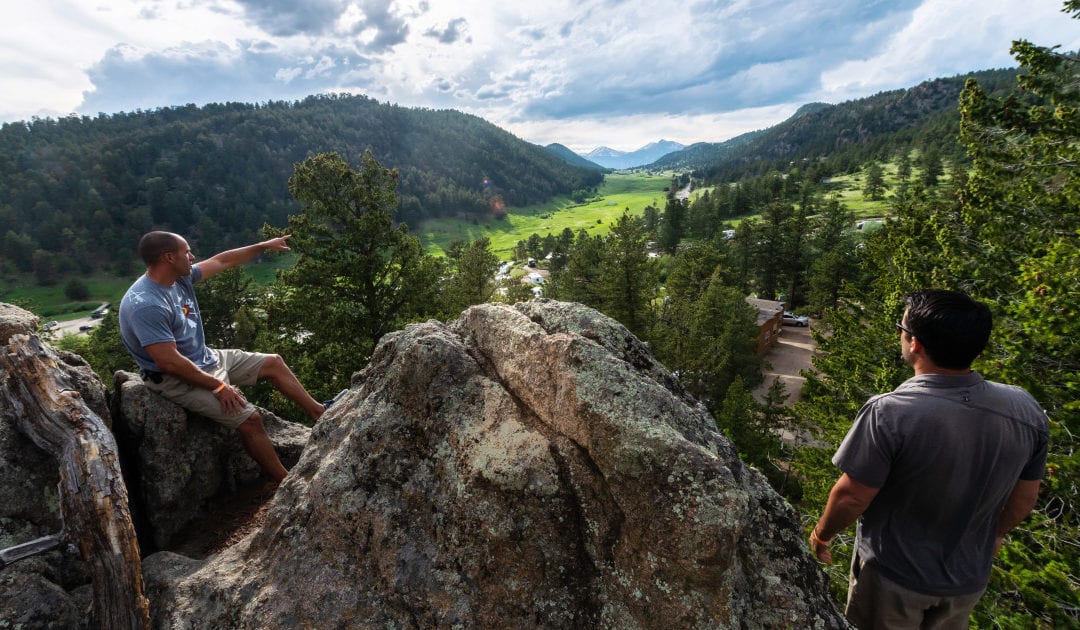Colorado is loosening some restrictions on people’s movement starting this week as the state enters a new phase of its battle against the new coronavirus, but travel for outdoor recreation is one area that’s not being relaxed.
COVID-19 IN COLORADO
The latest from the coronavirus outbreak in Colorado:
- MAP: Known cases in Colorado.
- WRITE ON, COLORADO: Tell us your coronavirus stories.
- DAY IN THE LIFE: How people across Colorado are coping
In fact, there may actually be stricter limits in place for people seeking some fresh air.
Gov. Jared Polis’ “safer-at-home” executive order issued Sunday night includes a provision ordering Coloradans not to travel more than 10 miles from their homes to recreate. That means activities like hiking, biking, skiing, fishing and rafting.
“Travel for recreational purposes should be limited to your own community, like your county of residence,” the Colorado Department of Public Health and Environment’s public health order, which went into effect on Monday morning, says.
The new safer-at-home order is in effect through at least May 27, meaning that Coloradans are expected to stay close to home past Memorial Day, the unofficial start of the summer and a popular weekend for camping and hiking. The fear is that visitors will either contract or spread the virus in areas of the state not as well equipped to deal with mass infections.
“You made the sacrifice of staying at home for 32 days,” Polis said at a news conference on Monday. “I think you can make the sacrifice of going to your second or third favorite park for another month.”

The Colorado Sun asked Polis how the state would enforce the 10-mile order, but he didn’t have an answer. Some mountain communities already have restrictions of their own on visitation and have been publicly asking non-residents to stay away.
The public health order from CDPHE is vague. The agency didn’t answer a question about what specific penalties people could face for violating the directive.
MORE: Governor says if Coloradans don’t take safer-at-home period seriously, the stay-at-home order may return
The order says: “This order will be enforced by all appropriate legal means. Local authorities are encouraged to determine the best course of action to encourage maximum compliance. Failure to comply with this order could result in penalties, including jail time and fines.”
The stay-at-home order that expired on Sunday allowed for outdoor recreation and actually appeared to OK travel of any distance to do so, though officials encouraged people to stay closer home.
“It’s really important to understand we really need everyone to do the right thing,” said Mike Willis, director of Colorado’s Office of Emergency Management, on a call with reporters Tuesday afternoon.
Already registered? Log in here to hide these messages.
Polis said Coloradans just need to be patient.
“Many of our communities that rely on tourism have had high viral count loads because of that tourism and just need more time where they need to get on their feet,” he said. “We don’t want you to go out to an area where you might get the virus because others are congregating there from across the state and other states. And we also don’t want people who unwittingly are bringing the virus back to communities that have made great progress at great cost.”
He added: “It’s really important that we respect the wishes of those communities.”
Many mountain communities, including Gunnison and Clear Creek counties, have enacted policies to keep visitors out. In Gunnison County, violators can face a $5,000 fine.
“Traveling beyond your community, potentially spreading this to other communities is a really counterproductive thing to do,” Willis said. “This isn’t the time to grab your family and run up to the mountains and potentially spread it to other communities.”
Polis said Coloradans should use outdoor recreation areas closest to them.
“Most Coloradans — I dare say every Coloradan — has numerous municipal parks or county open space within 10 miles of their home,” Polis said.
But at the same time on Monday, Polis celebrated the fact that Colorado’s parks have been able to stay open and said officials were working to allow camping to resume.
The safer-at-home order does include a clause that it can be amended or extended at any time.
The outdoor recreation industry in the high country has been delaying its spring and summer offerings.
One big, looming question is whether skiing may resume for a few more weeks. Arapahoe Basin, which has one of North America’s longest seasons, has been holding out hope that it may be able to open its slopes.
The 10-mile travel limit, however, would appear to make that difficult.
“We’re not necessarily trying to open tomorrow,” said Alan Henceroth, chief operating officer of A-Basin. “Any kind of reopening is going to be a collaborative process” with the state and Summit County.

Henceroth said the ski area has been preparing to reopen when the time is right, and is thinking through its options to keep people safe. That includes only having lifts and trails open and keeping its facilities closed.
And Henceroth said there’s no rush because this year’s strong snowfall is looking like it will allow skiing into at least late June.
“We still have a lot of time,” he said.
Already registered? Log in here to hide these messages.
The latest from The Sun
This content was originally published here.

